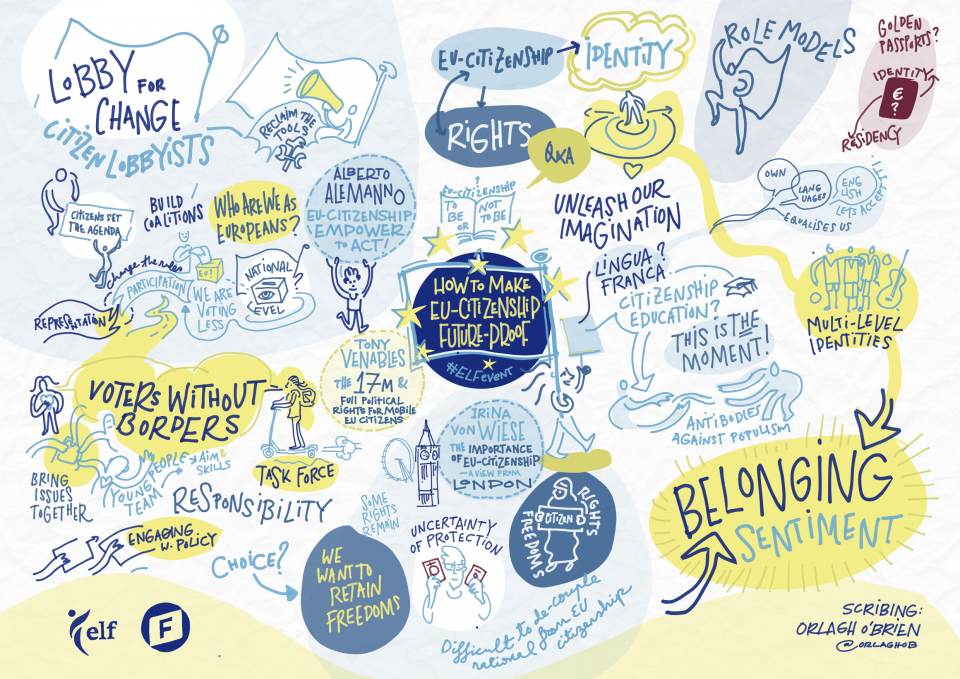Difficult times call for ambitious reforms. European Citizenship is an ambitious project whose success is tangible although partial in many ways. Several actors and elements are to be involved in order to mainstream a European mentality that can effectively defend and actively promote the values that our common citizenship is based on.
In the face of Brexit and the practice of EU Golden Passports in Malta and Cyprus, two lessons are to be learned according to ex-British MEP Irina Von Wiese: Citizenship is not for sale, and it should not be possible to be stripped of it, as has happened to British citizens.
Panellists underlined that EU treaties and institutions must come to the defence of existing rights, above all the freedom of movement – as we have seen it being swept away during the first wave of the pandemic, and the establishment of new rights must be considered – as demanded by the ‘Voters Without Borders’ European Citizens’ initiative, whose aim is to let EU citizens vote in the EU country they reside and pay their taxes.
In addition, existing tools of participation, such as the European Citizens’ Initiative, should be popularized and made more accessible so that it is no longer seen as the affair of a few privileged people frequenting Brussels’ European quarter. These tools are crucial for citizens to become engaged and act as “lobbyists for change”, as claimed by HEC Paris Professor and Founder of the NGO “The Good Lobby” Alberto Alemanno.
As recalled by ECIT Founder and Representative of ‘Voters Without Borders’, Tony Venables, the role of Citizenship Education is key in a rapidly changing world, where digitalisation, climate change, political and economic processes have an enormous impact on daily lives and therefore need to be thoroughly understood.
Limited Voting Rights, Golden Passports and Brexit – How to Make EU Citizenship Future-Proof was an ELF event from the series “Thinking Aloud”, organised in cooperation with Friedrich Naumann Foundation for Freedom Europe, and held on 18 November 2020.
The origin, benefits, and shortcomings of this special status are introduced in the ELF publication “To be or not to be: EU Citizenship” presented during the event by editor and co-authors Carmen Descamps and Irina von Wiese.
